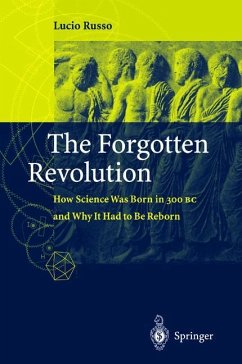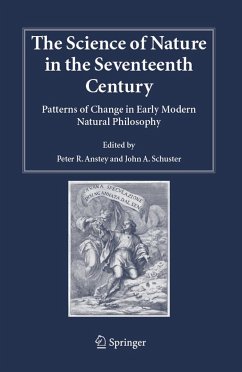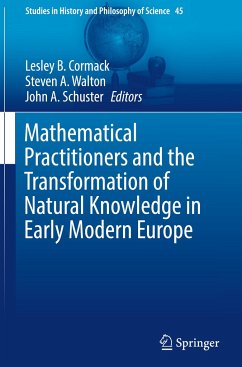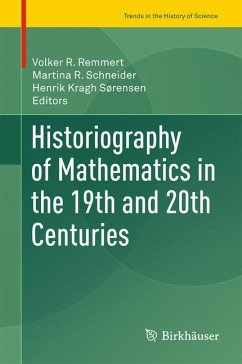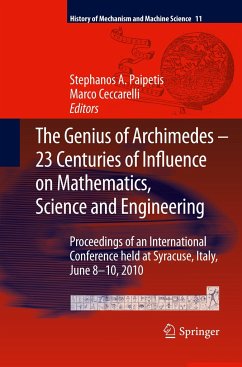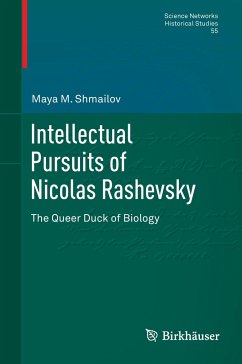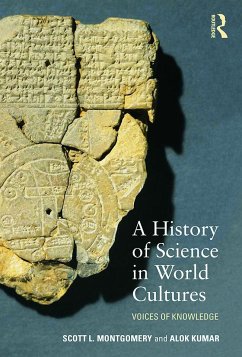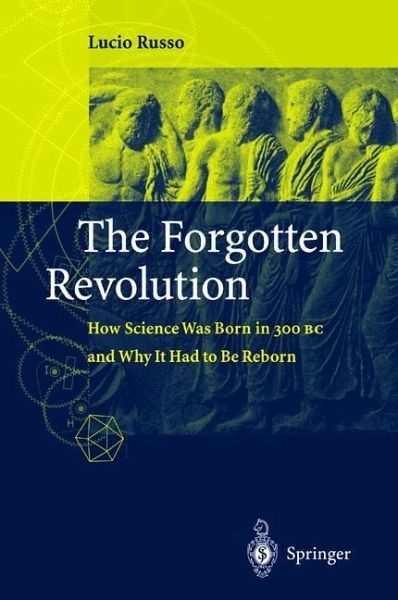
The Forgotten Revolution
How Science Was Born in 300 BC and Why it Had to Be Reborn
Übersetzung: Levy, Silvio
Versandkostenfrei!
Versandfertig in 1-2 Wochen
115,99 €
inkl. MwSt.
Weitere Ausgaben:

PAYBACK Punkte
58 °P sammeln!
The third and second centuries BC witnessed, in the Greek world, a scientific and technological explosion. Greek culture had reached great heights in art, literature and philosophy already in the earlier classical era, but it was in the age of Archimedes and Euclid that science as we know it was born, and gave rise to sophisticated technology that would not be seen again until the 18th century. This scientific revolution was also accompanied by great changes and a new kind of awareness in many other fields, including art and medicine.
What were the landmarks in the meteoric rise of science 2300 years ago? Why are they so little known today, even among scientists, classicists and historians? How do they relate to the post-1500 science that we are familiar with from school? What led to the end of ancient science? These are the questions that this book discusses, in the belief that the answers bear on choices we face today.
What were the landmarks in the meteoric rise of science 2300 years ago? Why are they so little known today, even among scientists, classicists and historians? How do they relate to the post-1500 science that we are familiar with from school? What led to the end of ancient science? These are the questions that this book discusses, in the belief that the answers bear on choices we face today.
The period from the late fourth to the late second century B. C. witnessed, in Greek-speaking countries, an explosion of objective knowledge about the external world. WhileGreek culture had reached great heights in art, literature and philosophyalreadyin the earlier classical era, it is in the so-called Hellenistic period that we see for the ?rst time - anywhere in the world - the appearance of science as we understand it now: not an accumulation of facts or philosophically based speculations, but an or- nized effort to model nature and apply such models, or scienti?ctheories in a sense we will make precise, to the solution of practical problems and to a growing understanding of nature. We owe this new approach to scientists such as Archimedes, Euclid, Eratosthenes and many others less familiar todaybut no less remarkable. Yet, not long after this golden period, much of this extraordinary dev- opment had been reversed. Rome borrowed what it was capable of from the Greeks and keptit for a little while yet, but created very little science of its own. Europe was soon smothered in theobscurantism and stasis that blocked most avenues of intellectual development for a thousand years - until, as is well known, the rediscovery of ancient culture in its fullness paved the way to the modern age.





